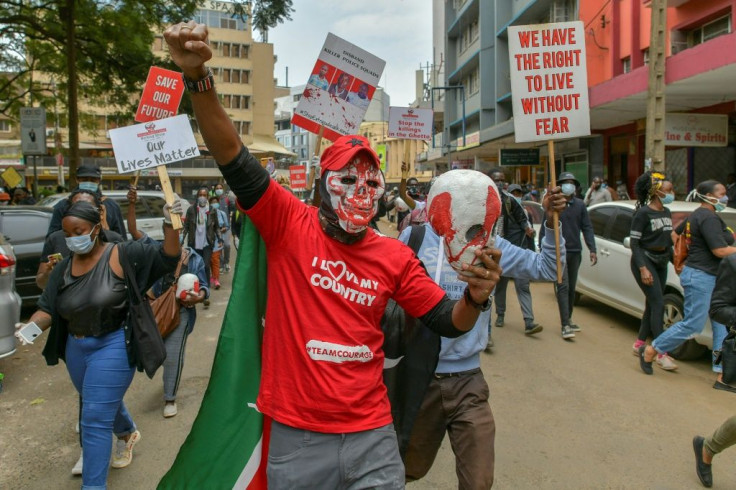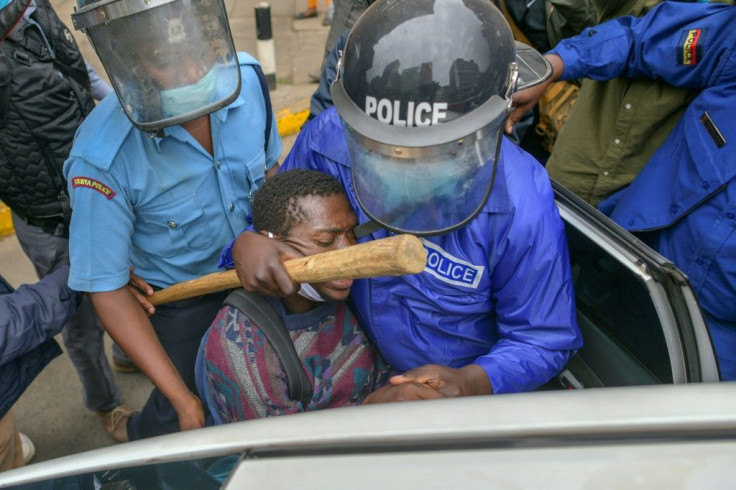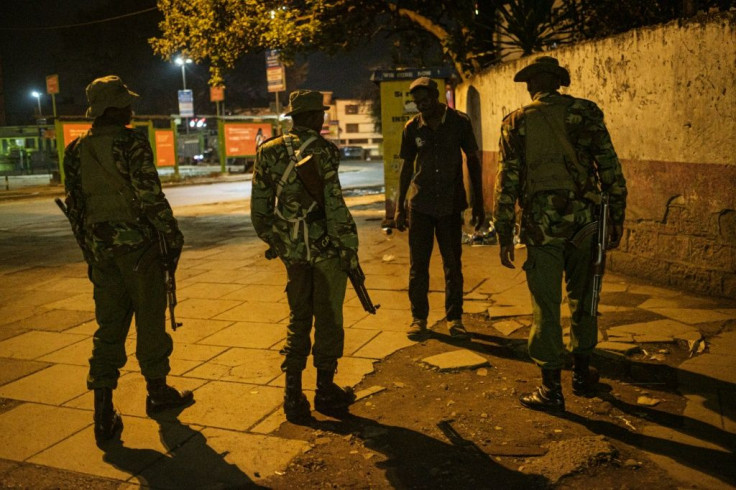Shock As Historic Charges Against Kenyan Police Dropped
The case was unprecedented in the years-long campaign against police impunity in Kenya -- a record 15 officers ordered to stand trial, accused of a terrifying rampage through a family home.
Never had so many officers -- nearly an entire station in western Kenya -- faced criminal charges over a single act of alleged police brutality. The victims filed into a courtroom in February expecting to witness a rare and historic moment of justice.
Instead, they sat in shock as state prosecutors told the court the case was being withdrawn.
"The prosecutor just appeared and said 'I am dropping this'. They were not even required to plead," said Peter Kiama, executive director of the Independent Medico-Legal Unit, a nonprofit that provided the victims with legal aid.
The quiet shelving of such a high-profile case bore the opaque hallmarks of a darker past, when the state shielded police from prosecution and embarrassing trials had a habit of disappearing, lawyers and human rights defenders said.
The landmark case, nearly a year in the making, had received the full backing of the Director of Public Prosecutions (DPP), before being abruptly pulled without explanation.

Neither police nor the prosecutor's office have spoken publicly about the decision to withdraw charges, and spokespeople for both institutions did not reply to repeat requests for comment.
"Anybody with an interest in accountability would be greatly shocked by this twist of events, and greatly disappointed," Kiama told AFP.
The accused officers were enforcing a coronavirus curfew in Busia County on the evening of March 30 when they allegedly entered the private home of Benard Orenga. Police alleged the premises was a bar, Amnesty International said.
According to the charge sheet, the officers embarked on a violent frenzy.

Police let off teargas, smashed windows and furniture, and savagely beat Orenga in front of his family before turning their clubs and whips on his wife, children and neighbours.
The Independent Policing Oversight Authority (IPOA) launched an investigation.
It found sufficient evidence to recommend prosecuting all 15 accused police, and six county enforcement officers were also implicated.
The DPP agreed and on January 21 charges were announced in a watershed moment.
"Of course we were elated. It was unprecedented," said Harriet Wachira, a program coordinator at Transparency International.
The charges made headlines after a year in which public anger over police brutality had erupted in protests.

Amnesty and other civil society groups recorded 166 police killings in 2020 -- the most since data collection began in 2007.
At least 15 people were killed by police enforcing a coronavirus curfew, IPOA said. Scores of other serious crimes were alleged, and social media littered with graphic scenes of police violently clearing the streets before nightfall.
Police spokesman Charles Owino did not deny some curfew-related abuses occurred.
"Some of these policemen are very young, and they're still very erratic. They can easily get drunk with the little power they have and do very wrong things," Owino told Kenyan broadcaster NTV in June.
The Busia case was hardly the worst in a year in which police brutality was on particularly gratuitous display.
But the DPP only approved charges in one other pandemic-related incident: the death of a 13-year-old boy, who was shot as police opened fire to clear streets at curfew in a Nairobi slum, the very same day officers stormed Orenga's house in Busia.
A public trial of 15 officers would have been symbolic and sent a strong and timely reminder that nobody was above the law, said Demas Kiprono, a Kenyan lawyer and campaign manager for Amnesty.
"This was going to be a groundbreaking case," he told AFP.
Few police in Kenya see the inside of a courtroom, let alone a jail cell.
Amnesty has documented 778 police killings and enforced disappearances since 2007, but only 28 charges over these crimes.
IPOA was established by parliament in 2011, to provide civilian oversight of a powerful and untouchable institution that also ranks among Kenya's most corrupt.
But of the roughly 6,000 cases of police misconduct IPOA investigated from its inception to the close of 2019, just six officers had been convicted.
Activists largely defended the authority's track record, saying police frustrate inquiries by refusing to report deaths in custody, or transferring accused officers to protect their own.
IPOA did not respond to requests for comment.
"It's not easy when you're investigating individuals within an institution whose culture is one of impunity," Kiama said.
Deflated but not defeated, those championing the Busia case are pressuring the DPP for answers.
"It was a milestone. That is why we won't let go," Kiama said.
© Copyright AFP 2024. All rights reserved.





















